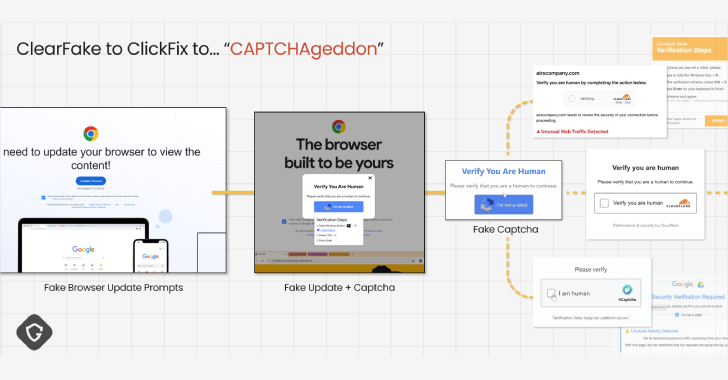
Frequently Asked Questions About ITIL Compliance
Navigating the world of IT service management (ITSM) can often seem like traversing a vast sea of acronyms and jargon. One term that frequently pops up is “ITIL.” It stands for Information Technology Infrastructure Library, but what does that really mean for businesses, IT professionals, and stakeholders? Let’s dive into the frequently asked questions about ITIL compliance to shed light on this framework that has taken the ITSM world by storm.
- What exactly is ITIL?
At its core, ITIL is a set of best practices and guidelines for IT service management. It provides a roadmap for businesses to design, develop, deliver, and maintain IT services in a way that’s aligned with the needs of the organization and its end-users. Born in the 1980s from the UK government’s initiative to improve IT service delivery, ITIL has since grown and evolved into a globally recognized framework.
- What does it mean to be ITIL compliant?
ITIL compliance doesn’t imply a strict set of rules that organizations must rigidly follow. Instead, it suggests aligning IT processes and services with the ITIL framework’s best practices. Being ITIL compliant means your organization is using the guidelines set out by ITIL to deliver high-quality IT services and continuously improve.
- Why should organizations care about ITIL compliance?
Several key benefits come with aligning IT processes with ITIL practices:
Improved Service Delivery: ITIL’s systematic approach ensures that IT services meet user needs and are delivered consistently.
Enhanced Customer Satisfaction: ITIL helps in understanding and prioritizing customer needs, which directly translates to increased satisfaction.
Cost Management: ITIL can guide organizations to make efficient use of resources, thereby reducing wastage and optimizing costs.
Risk Management: By identifying potential issues and creating processes to deal with them, ITIL helps in managing risks more effectively.
- Is ITIL compliance mandatory?
No, ITIL compliance isn’t mandatory. However, many organizations recognize its value and adopt it to reap the benefits it offers. That said, certain industries or geographies might have specific regulations or standards that dovetail with ITIL, making it a de facto requirement.
- How does ITIL differ from other ITSM frameworks or standards?
ITIL is just one of many ITSM frameworks, but it’s one of the most widely recognized. Others include COBIT, ISO/IEC 20000, and more. While all these frameworks have the common goal of improving IT service delivery, their methodologies, focus areas, and structures can differ. It’s essential to understand the unique requirements of your organization before choosing the right framework.
- How does an organization get started with ITIL compliance?
For organizations new to ITIL, here’s a brief roadmap:
Educate and Train: Begin with training key IT personnel on ITIL fundamentals.
Assessment: Analyze the current state of IT services and identify gaps in alignment with ITIL practices.
Prioritize: Not all processes need immediate attention. Decide which processes are critical and start with them.
Implement and Align: Adapt the selected ITIL processes and practices, ensuring alignment with business needs.
Review and Improve: ITIL isn’t a one-off task. Continuously monitor and refine processes for optimal results.
- Are there certifications related to ITIL?
Yes, there are! ITIL certifications range from foundational courses to master-level qualifications. Individuals can start with the ITIL Foundation certification, which provides a basic understanding of the framework, and move on to more advanced certifications. Organizations can also obtain ITIL certifications, indicating their commitment to maintaining high IT service standards.
- How often is ITIL updated?
ITIL is periodically updated to ensure it remains relevant in an ever-evolving IT landscape. The most recent iteration before my last update in 2022 was ITIL 4, introduced in 2019. It was designed to be more agile and applicable to modern digital businesses. Always check with official ITIL resources or training providers for the latest version.
- Is ITIL relevant for small businesses or just for large enterprises?
While ITIL’s best practices are scalable and can be applied to organizations of any size, it’s essential for smaller businesses to ensure they’re not overwhelmed by attempting to implement every guideline. Tailoring ITIL practices to match the scale and requirements of a smaller organization can yield significant benefits without the overheads associated with large-scale implementations.
- Can ITIL coexist with other methodologies like Agile or DevOps?
Absolutely. ITIL 4, in particular, was designed with modern IT practices in mind. It can integrate with Agile, DevOps, and other methodologies, offering a more holistic approach to IT service management.
In Conclusion
ITIL compliance is more than just a buzzword in the IT industry. Its continued relevance and growth over the decades is testament to its efficacy. Whether you’re a global enterprise or a budding startup, understanding ITIL and its benefits can lead to better IT service delivery, happier customers, and an optimized IT landscape.
Contact Cyber Defense Advisors to see how we can tailor our ITIL compliance services to your needs.





